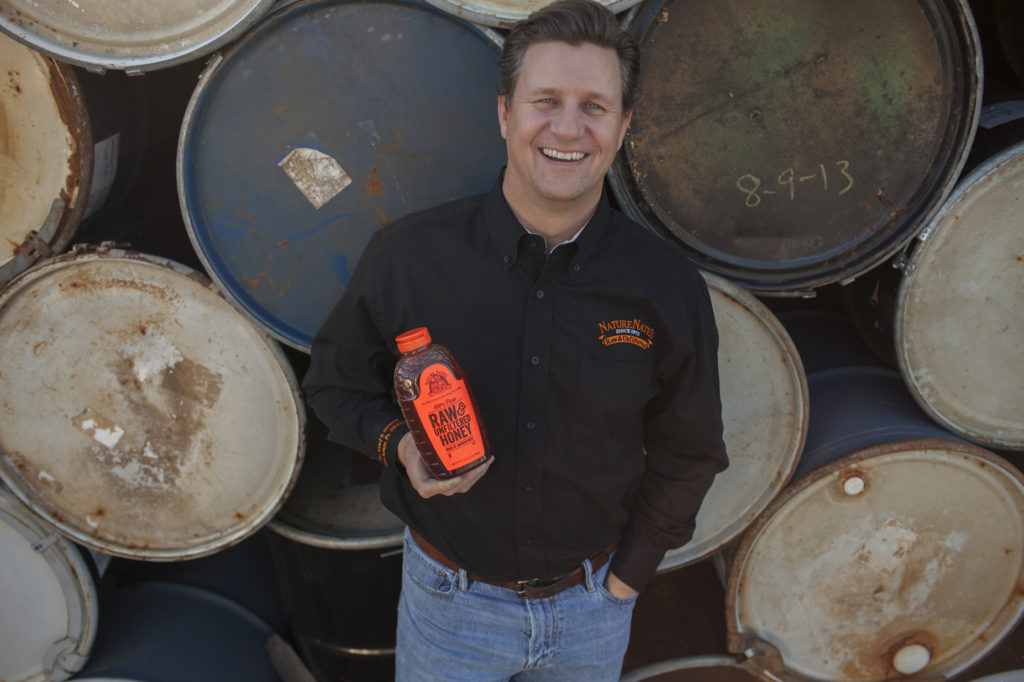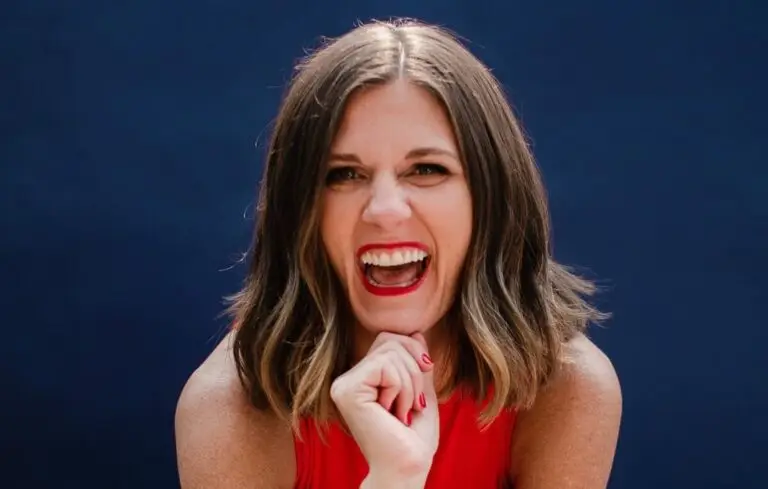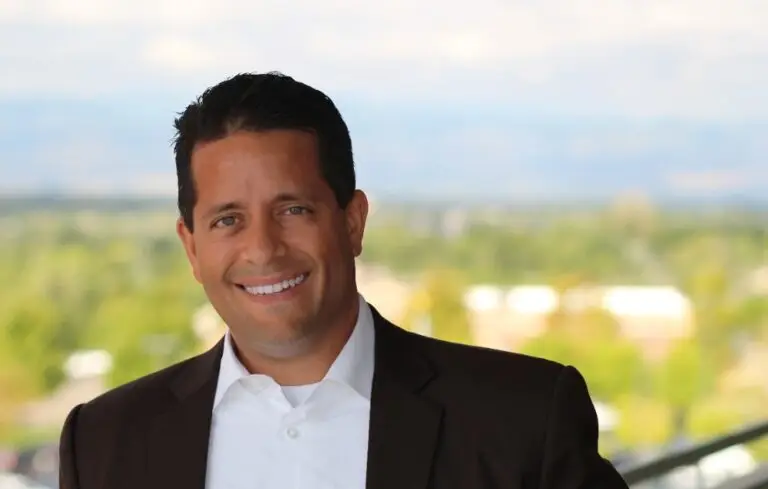
It was a hobby that started on a honeymoon and has since launched into an international brand.
Nature Nate’s honey is sold in more than 5,000 stores, including Costco, Sam’s Club, Walmart and many other national chains. It’s also on the shelves in Canada and Lebanon, and potentially in China, says CEO Nathan Sheets.
It all began in the mid-1990s on his honeymoon when Sheets’ wife Patty said they needed a hobby together. Sheets got it in his head that beekeeping was the hobby for them and used the early remnants of the commercial internet to find the “North Dallas Honey Company.” Eventually, he bought the honey company from its founder and ran it as a side business for 12 years, while working for Christian mission organization full time.
In 2010, he transitioned into running the honey company, changed the name to Nature Nate (a play on his college nickname, “Nature Boy”), and began selling the honey to chains across the country. “I always felt some level of dissonance because the honey company was named North Dallas Honey Company but the honey that we were buying was not from North Dallas, and quite candidly, about half of it was from North Dakota,” says Sheets.
Sheets spoke with Chief Executive about how the company has been able to grow over the years, challenges they face in the food industry, and more. Below are excerpts from this conversation.
What have been some of the strategies to grow this from something that was out of, basically your kitchen, essentially, to what you’ve become a global brand?
When I started doing the honey company full time, someone asked me, “What do you want to do with the honey company?” And I said, “I just want to help people.” I spent 12 years [with the mission organization] really focusing on trying to make an impact in people’s lives. And so we would raise money and then take those monies, and run programs which would make an impact.
And so when I started doing the honey company full time, my heart hadn’t really changed. I mean I still wanted to make a difference in people’s lives, I just wanted to do it by selling honey. And so when we started doing the honey business full time, I think even before it was in vogue, we took a very philanthropic, mission-driven perspective on what we wanted to achieve as a company. So it was always kind of about things that were bigger than us, bigger than just selling honey. This inspired our team to [grow] to [a large part of] where we are today as Nature Nate’s, you know?
We had a marketing campaign that we developed, really that initially started around an innovation concept of taking products that historically have been made with processed sugars and high-fructose corn syrup, and figuring out how to engineer them with honey. So we coined this marketing term, “honey makes it better” as a way to help promote that innovation platform.
We also started [using] that same slogan in even our community impact strategies. You know, honey makes it better, and honey makes life better when we steward those monies well. And then we can take those monies and make a difference in communities where people actually buy the product. So I think that in itself has been one of the driving, motivational factors behind why our team is so dedicated and works so hard to be the best at what we do in our category.
I will also say we work really hard in putting the best product out there. We have food safety standards, which are not normal inside the honey industry, in terms of testing. So we’ve got a really rigorous food safety standard and quality assurance program. We have a very unique flavor profile. And so whether you buy our honey up in Maine or over in Lebanon, it’s going to taste the same.
I think this eye towards quality and putting together a good product is important. Everyone’s concerned about food safety and where their food is coming from and knowing the sources of it. So when people buy into the brand and see the efforts that we put into making sure that they have a high-quality product, they totally buy into it. I always tell our staff, “We’ve got to make sure that we’re willing to put it on our family’s table before we’re willing to put it on someone else’s family’s table.”







